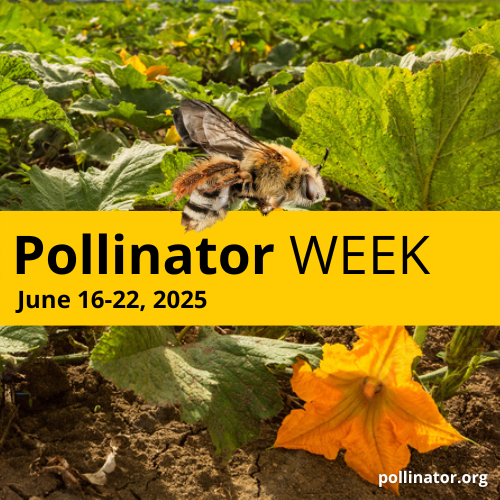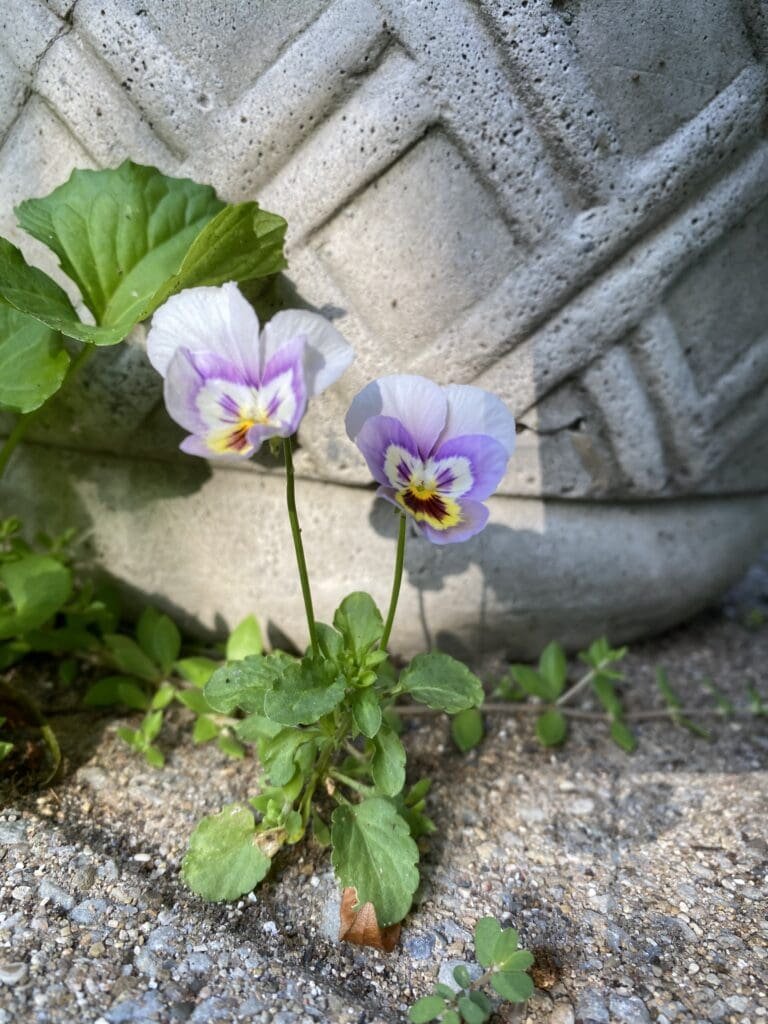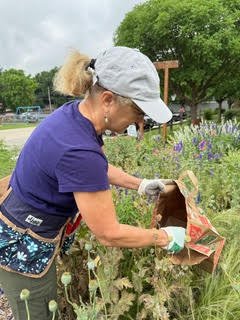
June 22, 2025
Meet the 2025 Pollinator of the year, the Hoary squash bee.
As much as I love bees, the squash bee has escaped my notice. Thankfully, pollinator.org has selected this bee as its 2025 pollinator of the year.
Honey bees are generalists while squash bees rely almost exclusively on squash and gourd pollen to feed their young. They are expert foragers on the squash blossoms of pumpkins, summer squash, winter squash, zucchini and gourds of the Cucurbita Family.
Squash bees are large and bulky like bumblebees, but are more similar to honeybees in their coloring. Compared to honeybees, they have rounder faces and longer antennae.
Sunrise is the best time to be in our Texas gardens and that’s when you might find a male squash bee darting from squash flower to squash flower in search of mates. The females are busy pollinating and build undergound tunnels to store squash pollen and nectar for their offspring.
Why do we need to focus on pollinators?
Our efforts make a difference, and pollinators need our support. I have read that one in three bites of food can be attributed to the work of our pollinators. There is a lack of interest in backyard biodiversity and planting to provide for pollinators. Miles of boxwood bushes and plastic lawns do nothing for bees or butterflies. Even flowers like periwinkles do not provide pollen, so we need to be more intentional and protective of pollinators and select and provide for them. Doug Tallamy reminds us” plants are not just for decoration, plants are vital ecological entities that do so many things.”
Start small, your backyard can become an oasis for you and our pollinators. If you need help, call a Master Gardener or visit our garden, The Raincatcher’s Garden, at 11001 Midway Road in Dallas. There are many good books and native plant lists available.
Ann Lamb, Dallas County Master Gardener Class of 2005
To learn more about honeybees, one of our favorite pollinators, buzz over these articles.
Communication in the world of bees, let’s dance
The Three Different Types of Honeybees








